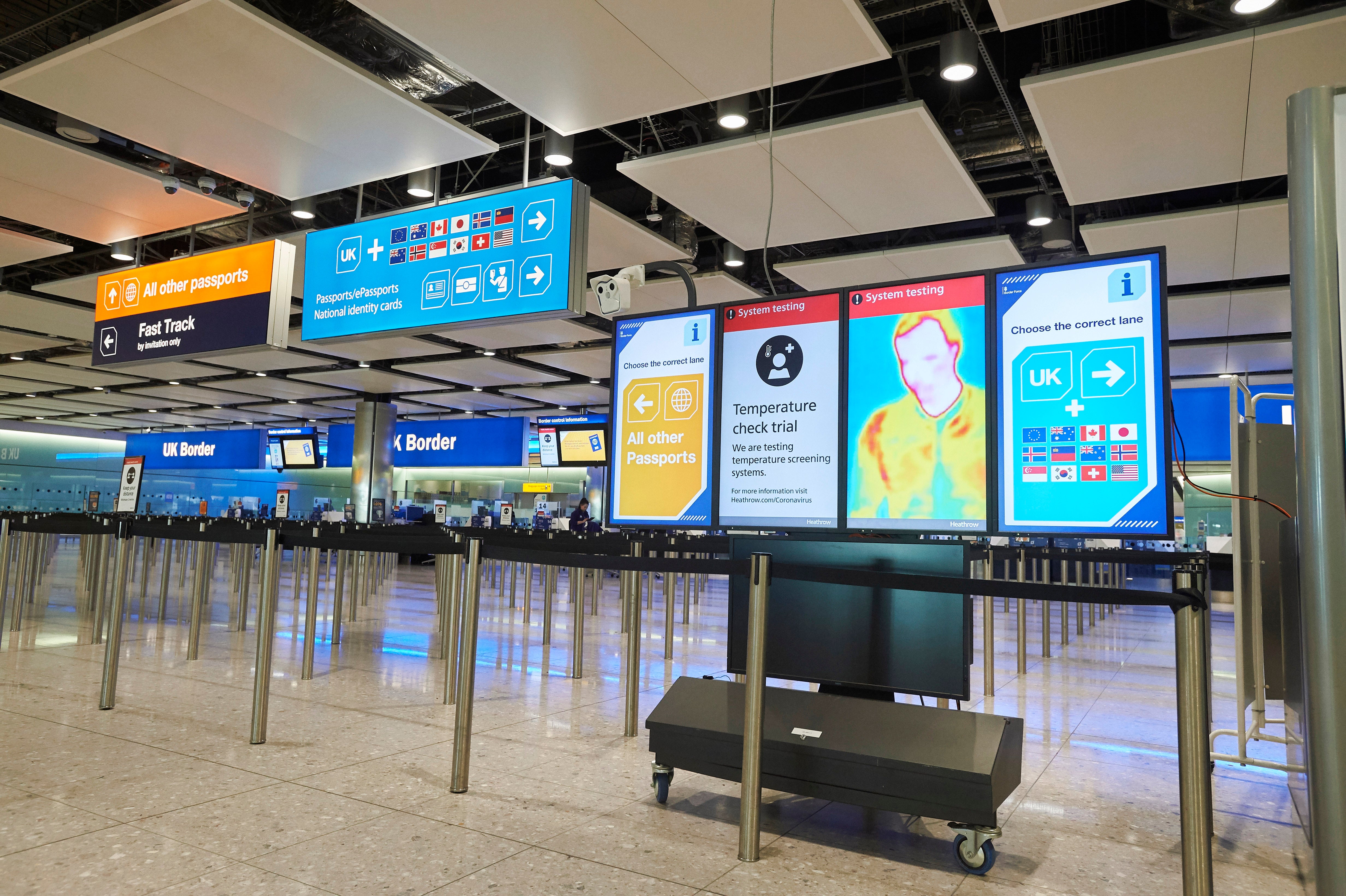Quarantine: ‘Devastating economic impact’ if testing is not an option, says global travel leader
Labour Party accepts prime minister’s flawed claims on effectiveness of airport tests

Your support helps us to tell the story
From reproductive rights to climate change to Big Tech, The Independent is on the ground when the story is developing. Whether it's investigating the financials of Elon Musk's pro-Trump PAC or producing our latest documentary, 'The A Word', which shines a light on the American women fighting for reproductive rights, we know how important it is to parse out the facts from the messaging.
At such a critical moment in US history, we need reporters on the ground. Your donation allows us to keep sending journalists to speak to both sides of the story.
The Independent is trusted by Americans across the entire political spectrum. And unlike many other quality news outlets, we choose not to lock Americans out of our reporting and analysis with paywalls. We believe quality journalism should be available to everyone, paid for by those who can afford it.
Your support makes all the difference.“Britain is now isolated with no international visitors” – that is the blunt assessment of Gloria Guevara, chief executive of the World Travel & Tourism Council (WTTC).
Her organisation, the trade association for global travel, is renewing calls for an alternative to the current quarantine policy.
Arrivals to the UK from most countries, including France, Spain and the US, are obliged to spend two weeks in self-isolation. Quarantine has been described as “a travel ban in all but name” by Gordon Dewar, chief executive of Edinburgh airport.
Ms Guevara said: “A small change to test people before travelling can have a significant positive impact, like we’ve seen with other countries that are now so much further ahead and have been testing travellers entering their countries for weeks.
“It’s impossible to understand why the UK is reacting with more quarantine measures, which have a devastating economic impact, rather than on something that would enable the economy to recover more quickly and get us all back to some form of normality.”
A government spokesperson said: “Work is ongoing with clinicians, the devolved administrations and the travel industry to consider if and how testing could be used in the future to reduce the self-isolation period.
“Any potential change to the testing for arrivals would need to be robust in minimising the chance that positive cases are missed.”
Meanwhile, in the latest bizarre twist in the debate about testing arriving passengers for coronavirus, the Labour Party has backed the prime minister’s mistaken claim that only 7 per cent of people infected with the virus would be identified by a swab test on arrival in the UK.
On Friday Boris Johnson told the BBC: “Unfortunately it only works in 7 per cent of the cases.
“So 93 per cent of the time you could have a real false sense of security, false sense of confidence when you arrive and take a test.”
The leading statistician Sir David Spiegelhalter, Winton Professor of the Public Understanding of Risk at Cambridge University, tweeted: “This is hopelessly wrong.
“Even if 7 per cent were true (evidence?) the vast majority of people will have correct negative tests.”
Nevertheless the shadow home secretary, Nick Thomas-Symonds, backed the prime minister’s claim on the BBC’s Marr programme on Sunday, saying: "The rate would be round about seven per cent of cases that could be discovered”.
The Independent asked the government for the evidence to support Boris Johnson’s assertion, and was supplied with a link to a paper produced in June by the Public Health England modelling cell.
This theoretical analysis makes clear that the 7 per cent figure pertains only to asymptomatic travellers. The unnamed authors point out that it is “highly dependent on a range of assumptions”.
Sir David tweeted: “What must the authors of this analysis be thinking when they hear the ‘only 7 per cent’ claim from the PM?”
The Labour Party has declined to provide an official response.





Join our commenting forum
Join thought-provoking conversations, follow other Independent readers and see their replies
Comments